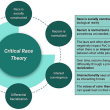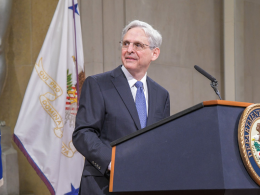Rapid advancements in technology make it easier than ever for the government, companies, and other entities to keep an eye on people.
With this in mind, powerful individuals and agencies have recently pumped massive amounts of cash into projects tailor-made to expand their authority.
And Bill Gates just dropped some serious cash to advance this controversial project.
Proponents of digital IDs just got the update they have been waiting for
Technology has advanced significantly in the last several years, allowing people to do more with their PCs and smartphones than ever before.
These rapid advancements have also played into the hands of powerful agencies and governments, allowing them to track every movement of their citizens and customers.
Digital IDs in particular have become increasingly popular, with some states and localities adopting them in the United States.
Proponents of digital IDs boast about the convenience that such IDs allegedly bring, making alcohol purchases, traffic stops, and visits to the DMV a synch.
However, many dread the rollout of digital IDs, fearing that they can give powerful entities the authority to track the every move and purchase of digital ID holders.
Also, many digital ID skeptics point to nations such as China that use digital IDs to develop Orwellian “social credit scores” which rate an individual’s loyalty to the state, restricting personal liberties if a score gets too low.
Nonetheless, tech mogul Bill Gates recently dumped $4 million into the British AI and data science research group Alan Turing Institute through his Bill Gates Foundation.
This so-called “investment” in the Turing Institute will help to advance and develop what Bill Gates calls the “digital public infrastructure (DPI),” which refers to the development of forms of digital IDs and digital payments.
Following the receipt of this generous grant, a spokesperson for the Turing Institute posted on its official website, detailing how they plan to spend this cash.
According to the post, the Turing Institute hopes to “build upon the existing efforts of the partnership to establish trustworthy digital infrastructure systems and increase the scope of their work beyond digital identity to include secure and privacy-preserving data exchange, credentialing, and electronic signature mechanisms for paperless and cashless digital economic growth.”
The Turing Institute then emphasized the need for such investment, claiming that, “If trustworthy digital public infrastructure is designed and implemented effectively, it can help countries achieve their national priorities and accelerate progress towards their sustainable development goals.”
Many fear that these aspirations to facilitate “the national priorities” of various nations could backfire.
After all, history has demonstrated countless examples of where the “national priorities” of a central government directly opposed the priorities of the people they claimed to represent.
Bill Gates has made it clear that he does not stand on the side of advancing personal liberties
In recent years, Bill Gates has pumped massive amounts of cash into digital ID and digital payment research.
Gates often cites highly populated and developing nations such as India as digital ID success stories, however, he has yet to discuss all of the calamity that can come with digital IDs.
In nations such as Communist China, the government uses digital IDs to trounce the personal liberties of its citizens.
Many Americans fear that a nationwide implementation of digital IDs would similarly give the already bloated federal government even more power, and the ability to further restrict the personal liberties of Americans.
Stay tuned to Unmuzzled News for any updates to this ongoing story.
















